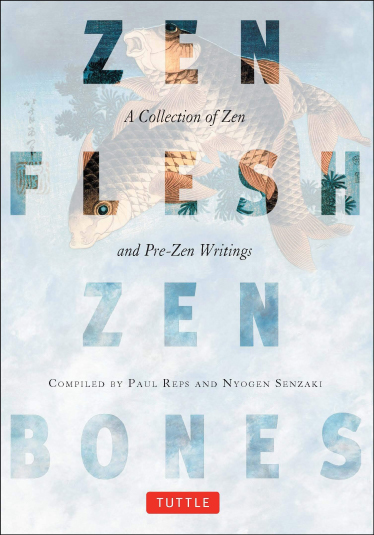About Zen Flesh, Zen Bones
Zen Flesh, Zen Bones offers a collection of accessible, primary Zen sources so that readers can contemplate the meaning of Zen for themselves. Within the pages, readers will find:
- 101 Zen Stories, a collection of tales that recount actual experiences of Chinese and Japanese Zen teachers over a period of more than five centuries
- The Gateless Gate, the famous thirteenth-century collection of Zen koans
- Ten Bulls, a twelfth century commentary on the stages of awareness leading to enlightenment
- Centering, a 4,000 year-old teaching from India that some consider to be the roots of Zen
When Zen Flesh, Zen Bones was published in 1957, it became an instant sensation with an entire generation of readers who were just beginning to experiment with Zen. Over the years it has inspired leading American Zen teachers, students, and practitioners. Its popularity is as high today as ever.
Excerpt
60. The Tunnel
Zenkai, the son of a samurai, journeyed to Edo and there became the retainer of a high official. He fell in love with the official's wife and was discovered. In self-defense, he slew the official. Then he ran away with the wife.
Both of them later became thieves. But the woman was so greedy that Zenkai grew disgusted. Finally, leaving her, he journeyed far away to the province of Buzen, where he became a wandering mendicant.
To atone for his past, Zenkai resolved to accomplish some good deed in his lifetime. Knowing of a dangerous road over a cliff that had caused the death and injury of many persons he resolved to cut a tunnel through the mountains there.
Begging food in the daytime, Zenkai worked at night digging his tunnel.
When thirty years had gone by, the tunnel was 2,280 feet long, 20, feet high, and 30 feet wide.
Two years before the work was completed, the son of the official he had slain, who was a skillful swordsman found Zenkai out and came to kill him in revenge.
"I will give you my life willingly," said Zenkai. "Only let me finish this work. On the day it is completed then you may kill me."
So the son awaited the day. Several months passed and Zenkai kept on digging. The son grew tired of doing nothing and began to help with the digging. After he had helped for more than a year, he came to admire Zenkai's strong will and character.
At last the tunnel was completed and the people could use it and travel in safety.
"Now cut off my head," said Zenkai. "My work is done."
"How can I cut off my own teacher's head?" asked the younger man with tears in his eyes.
About Paul Reps
Paul Reps (September 15, 1895 – July 12, 1990) was an American artist, poet, and author. He is best known for his unorthodox haiku-inspired poetry that was published from 1939 onwards. He is considered one of America's first haiku poets.
In association with his writing, Reps was also a well-received artist. Many of his books have artwork influenced by Zen Buddhism displayed in association with his writings.
